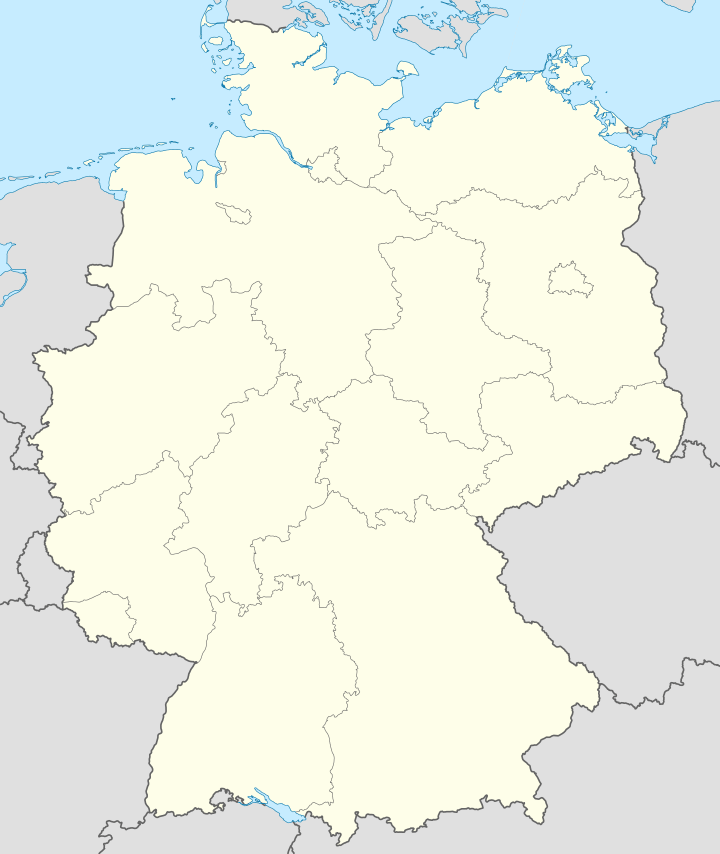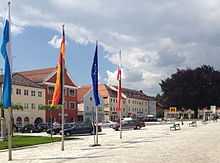Bad Griesbach (Rottal)
| Bad Griesbach i.Rottal | ||
|---|---|---|
| ||
 Bad Griesbach i.Rottal | ||
Location of Bad Griesbach i.Rottal within Passau district  | ||
| Coordinates: 48°27′N 13°12′E / 48.450°N 13.200°ECoordinates: 48°27′N 13°12′E / 48.450°N 13.200°E | ||
| Country | Germany | |
| State | Bavaria | |
| Admin. region | Niederbayern | |
| District | Passau | |
| Government | ||
| • Mayor | Jürgen Fundke | |
| Area | ||
| • Total | 70.18 km2 (27.10 sq mi) | |
| Population (2013-12-31)[1] | ||
| • Total | 8,501 | |
| • Density | 120/km2 (310/sq mi) | |
| Time zone | CET/CEST (UTC+1/+2) | |
| Postal codes | 94086 | |
| Dialling codes | 08532 | |
| Vehicle registration | PA | |
| Website | www.badgriesbach.de | |
Bad Griesbach is a town in the district of Passau in Bavaria in Germany.
History

Town square of Bad Griesbach

"Burg Griesbach" is first mentioned in a document from around 1076. The place was part of Landshut. It was raided and destroyed by an army from the Electorate of the Palatinate in 1504, only to be re-erected soon afterwards. In 1778/79 Griesbach was occupied by Austrian forces. As part of the Dukedom Bavaria 'Griesbach i.Rottal' (official name) became more independent. In 1953 it was officially turned into a town (Kleinstadt).
The Bavarian reform of 1972 merged the municipalities of Karpfham, Parzham, Reutern, St. Salvator and Weng. The discovery of hot springs in 1972/73 lead to a new orientation as a spa town.
International relations
Bad Griesbach (Rottal) is twinned with:
References
- ↑ "Fortschreibung des Bevölkerungsstandes". Bayerisches Landesamt für Statistik und Datenverarbeitung (in German). 31 December 2013.
